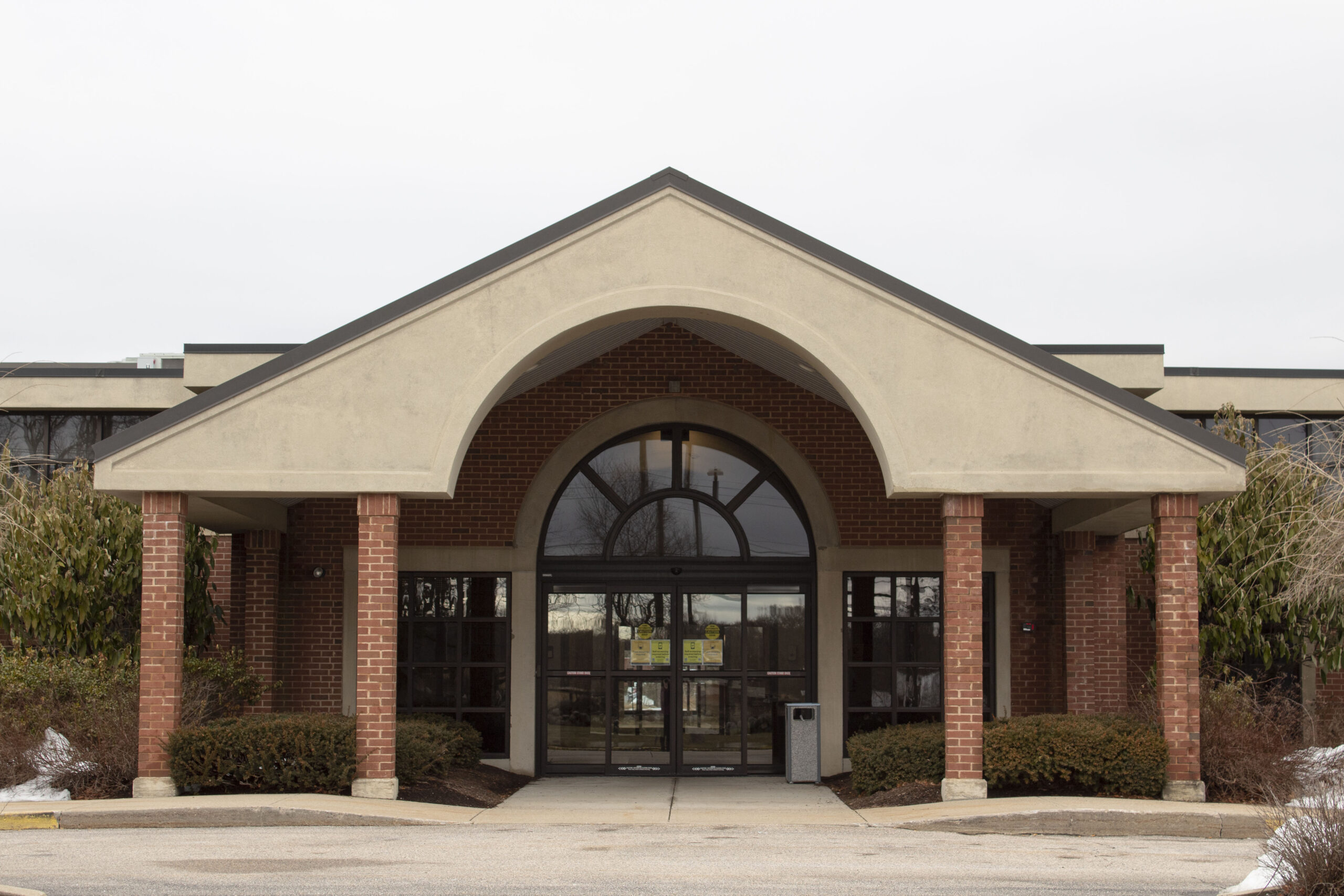The Beaupre Speech and Hearing Center located in Independence Square offers community members speech therapy and treatment for hearing and speech disorders. PHOTO CREDIT: Hannah Charron | Staff Photographer
For people struggling with speech issues and hearing loss, the Walter J. Beaupre Speech and Hearing Center at the University of Rhode Island provides many useful resources.
The clinic is located in Independence Square. It offers a variety of different resources for hearing and speech, which include things from hearing aids for adults to multiple types of speech therapy such as group therapy, individual programs and book clubs for people with Aphasia, a type of speech loss due to brain damage.
The center was previously run by Elizabeth Conners, who retired in the fall of 2021. The center is currently run by Carolyn Evangeline, the speech and hearing center coordinator.
“I’m part of the hearing center,” said Dr. Rachel-Ann Smith, audiology clinic coordinator. “We offer diagnostic services, we do hearing testing for adults and children. We also offer hearing aid services”
The school works with Ocean State Center for Independent Living (OSCIL) in order to provide affordable hearing aids for a low cost at the URI community.
According to Smith, the clinic only offers hearing aids for adults over the age of 18. This is due to child hearing loss being a different field that specializes in its own set of hearing aids. Child patients would have to go to places such as a pediatric hospital for pediatric hearing aids.
The center also offers a variety of hearing aids, such as ones with batteries and ones without.
According to Smith, deaf patients who are also blind really enjoy the chargeable hearing aids as they can just put them on the charger and do not have to worry about which aid is for each ear.
One group that is included is HEAR, or Hearing loss Education and Aural Rehabilitation, which provides a support group for people affected by hearing loss.
“We have about 17 members right now who are coming to serve as a part of that group, to learn communication strategies between one another and to tell stories and have a support group for one another,” said Smith
Students and other individuals can come in for a hearing test at any time, according to Smith.
It also features aural rehabilitation, or activities meant to help people dealing with hearing loss, such as counseling patients on their hearing loss or helping the patient learn how to program their hearing aid properly.
For speech, the center offers numerous types of groups and programs for a wide variety of people.
“We offer a specialized program called LSVT [Lee Silverman Voice Treatment] loud for adults with Parkinson’s disease, reading programs for people who have had strokes, we offer gender affirming voice training for transgender individuals,” Leslie Mahler, communicative disorders professor, said.
In addition, they also offer Gateway Cafe, which is a group of people with brain injuries that meets for support and development of social and communication skills.
According to Mahler, the Beaupre Speech and Hearing Center treats people in an individualized manner. No two people and their needs are exactly the same, resulting in a different approach to helping patients based on their specifications.
Students in the communicative disorders major also help the people that come into the clinic.
“Not only do students get to do clinics they have to, our graduate students as part of their clinical experiences get to work with children as well as adults,” said Mahler.
This includes 375 hours of clinical practices in addition to the academic classes that they are already participating in.
According to Mahler, some students will come in fully wanting to work with children and find it can be hard. This could be due to things such as the restless nature of children.
“When you’re talking about treatments, you’re just adapting to that client whether or not that child is able to sit and follow directions when we do a hearing test, some three year olds can,” said Mahler
The gender affirming voice training for transgender students is one of the most important programs that is offered by the clinic, according to Mahler.
“In my transgender voice training, I’ve had several students who are interested,” she said.
She also mentioned that the numerous resources available also have group meetings and are readily available for people in the area, as well as students, who it is free for.





